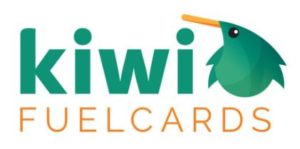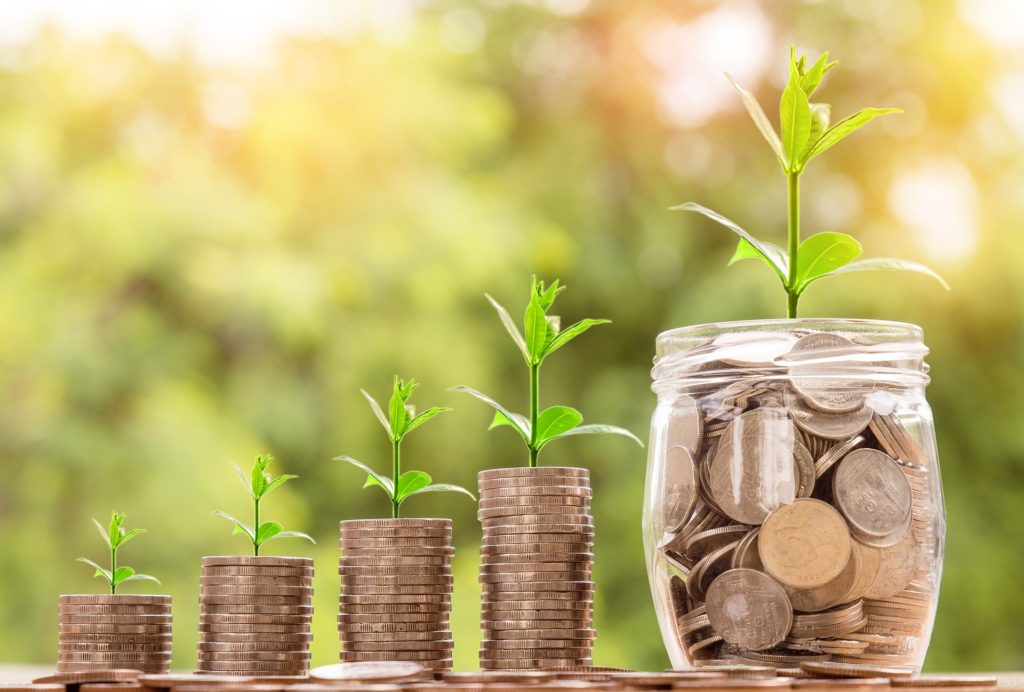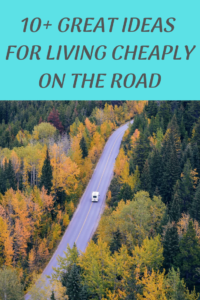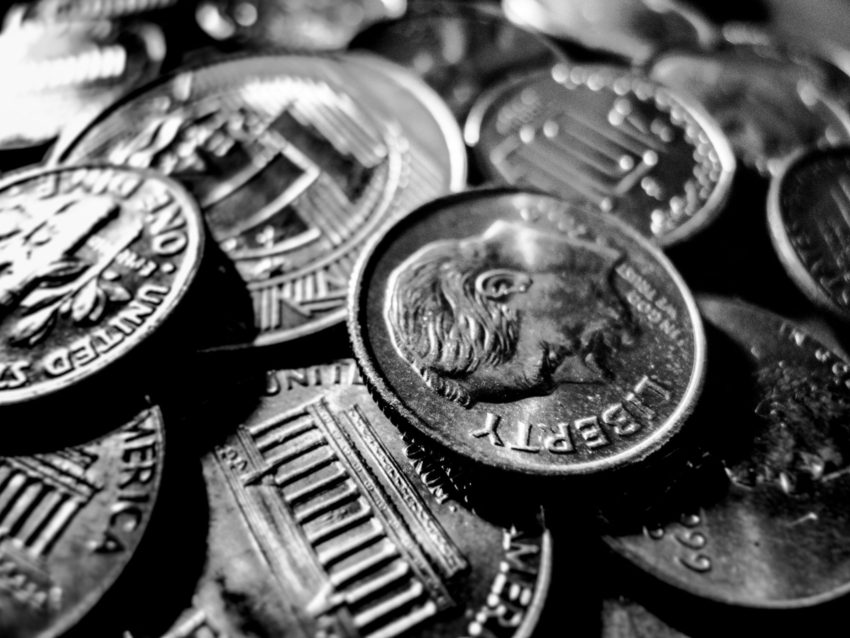Looking for ways to cut your spending on the road?
Here are ten easy to implement ideas for saving your dollars so you can go further on less.
10+ Super Ways To Save Money On The Road in NZ
1. Join the NZMCA
Three great financial reasons I can think of:
*Cheap accommodation options
How to save with NZMCA…Join as an individual or couple. Download the NZMCA app. Use it to search for places to stay. Get someone to teach you if you don’t know what to do.
Freedom Camps – If you’re looking to save the most, wherever possible, use freedom camping spots. These spots have purple markers on the app and are totally free! Most allow stays of up to 3 nights. Check council regulations as regions vary in their freedom camping rules.
POPs (park over properties) are marked pink on the map in the app and are also free.
CAPs (charges apply properties) are cheap at around $5-10 per van per night, sometimes having facilities too.
Campsavers (yellow marked with red CS) is where some formal campgrounds offer a special deal for NZMCA members of about $20 per night per couple staying.
Also, ask for long term rates if you’re staying in one place for an extended period.
It also pays to read reviews about different campsites as some are noisy or out of the way. There’s a ‘comments’ tab when you go into the information for a property or facility.
*Super savings on ferry crossings with Bluebridge OR InterIslander
We saved close to $400 on our ferry crossing cost so definitely enter your membership number when booking your ferry! Booking in advance, travelling on low season dates and using flexi tickets could all save you money.
*Other financial benefits of NZMCA membership
These include savings on insurance, fuel, retail shopping at Noel Leeming, VTNZ CoF discounts, travel and 4G enabled wireless broadband for motor-caravans with Wireless Nation – Quote 15353 in the referrer field when you sign up.
2. Apply for Kiwifuel Cards & Slow Down

By joining the NZMCA, you can apply for no-fee Kiwi Fuelcards and save up to 12c per litre on your petrol or diesel!
How it works:
1. Go to the Kiwi Fuels website and complete a simple application form
2. Your selected fuel card(s) are sent to you
3. You use the cards to purchase fuel at the appropriate sites e.g. Mobilcards are used at Mobil branded service stations, Z cards at Caltex, Z & Challenge sites etc.
4. You do not pay at the time.
5. At the end of the month, an itemised invoice/statement is sent to you
6. You pay by Direct Debit the following month
If you don’t want to join Kiwi Fuels, downloading the Gaspy app, and checking for the best price in your area before buying could save you some cash.
We’ve found that the North Island has more updates on pricing on Gaspy so it’s use was more reliable there.
Using AA or supermarket fuel discount dockets are other ways to save at least 6c per litre.
Of course, another way to save on fuel is to not drive so much. By slowing down and lingering where possible, it’s easier to keep both your monthly fuel and RUC costs down.
3. Eat Cheaper

The cheapest way to eat on the road is to buy your food at supermarkets and prepare meals yourself. Of course, it’s nice to eat out occasionally but cafe, restaurant, and takeout meals can blow out your budget in no time.
We shop for most of our groceries at Pak ‘n Save as we find them the cheapest overall.
Some towns don’t have one so we do our largest stock ups wherever we find one and then buy a few supplies, especially bread and milk, along the way at other providers like Countdown, New World, Four Square, Super Value, or local dairies as needed.
You can also sign up for loyalty cards from New World and Countdown which give you better prices on the day and points when you shop that can be redeemed to save you some in the longer term too.
Most supermarkets also have clearance shelves or baskets of items with damaged packaging etc. You can find some bargains this way like the factor 50 sunscreen I got for half price once.
New Worlds also sometimes have yesterday’s specialty baking reduced for quick sale, saving you at least $1 to half the price off the regularly priced goods.
Countdown often has certain packs of reduced meat so save a few bucks by buying those items where you can or want.
Eating cheaper meat cuts will save you too. Sausages, sirloin, and roasts can be surprisingly dear but chicken, beef chuck, rump, and marinated chops are frequently more competitively priced.
If you’re after a challenge, how about seeing if you can aim to spend about $5 on meat per dinner? This challenge makes you look for specials and buy meat when it’s cheaper. If your freezer has room, stockpile when meat’s on sale to save you in the long run.
4. Op Shop
Almost every town has an opportunity/ charity shop or second-hand goods store. Of course, you can’t always get exactly what you want when you want it but if you’re willing to wait and try a few different shops, the hunt for an item can become fun plus you’re likely to succeed, saving yourself a lot on acquisitions.
School galas and car boot sales are also good places to find cheaper options if you don’t mind the greater crowds and rifling through a sea of used gear.
5. Swap Books & Use Digital Library Services
6. Book Attraction Tickets Online
You can save a lot on activities and attraction entries by booking ahead online.
There are lots of online deal sites now such as GrabOne, 1-day, TreatMe, CatchOfTheDay, and so on. You can change the region on these sites to search areas relevant to you.
My favourite site to use while travelling in New Zealand has been Bookme where admission rates for attractions, events, and activities are greatly reduced, especially if you book 3 or so days in advance.
You’ll need to create yourself an account with Bookme, choose an activity, buy and pay online. Then you’ll get emailed a digital receipt/ scannable code which you present on your day of entry at the given attraction and walk on in.
We got into Hanmer Hot Springs for $15 instead of $25 an adult and my dad recently visited the Milford Sound and did a Jucy Cruise he got on Bookme for $29. If he’d shown up and paid for it on the day, it would have cost him $99! So you can save a packet this way.
7. Park for free
Parking and camping for free have saved us bucket loads. Naturally there are days where convenience or proximity reign but most days we try to at least park for free.
Sometimes this means parking up on the edge of town or a park/ reserve and walking, catching a bus (free for gold cardholders ), or tram into the city.
Or, if you have bikes, park your motor home in an out of town free spot and pedal your way to a healthier body and wallet.
More recently, some cities are running electric scooters for hire. Companies include Jump, Lime, Flamingo, Beam, and Onzo who provide dock-less electric bike-sharing and now scooters too.
Most electric scooters are super zippy, riding up to 25+km/p and can be a lot of fun, getting you from A to B faster.
To use them, you download the relevant company’s app and can ride for the rates shown.
Helmets plus vigilance for pedestrians and larger vehicles on the road recommended.
8. Eat At Home
Eating in costs less.
Sure it’s less social and easy at times but count the cost before you spend your cash on ready-made food as it does add up for the convenience.
If you like eating out, try getting loyalty drink and meal cards at your favourite places so you can get discounted prices now and then. Joining a club or RSA can make eating out at discounted rates more affordable too.
If you love hot drinks as much as Kiwis, who are one of the top 20 coffee drinking countries in the world (statista.com), you could land up quite out of pocket.
Caffeine habits don’t come cheaply, especially when cafes charge as much as $6.50 for a regular flat white, so get yourself a loyalty card for where you buy and be diligent in getting it stamped.
Several places offer loyalty programmes. You can read a comparison here which tables the main providers showing those that save you most. Deal!

9. Power Yourself
Not everyone’s power needs are the same.
So what is it that you need? What appliances and devices do you want to run in your motor home?

Can you swap power-hungry devices for lighter versions? Laptops can vary a lot in what they require to run.
Installing enough solar for your set up so you don’t need to plug in or rely on campsites will save you lots. With enough solar you can choose to freedom camp more, bringing your accommodation costs right down.
Also, if you haven’t, consider alternator charging. By installing a VSR to top up your batteries while you drive, generators become unnecessary, saving you on fuel and noise pollution.
Another thing to consider is limiting your inverter choice to only what you need as larger ones use more power on standby.
For smaller battery-operated items like torches, rechargeable batteries usually work out cheaper overall. Noel Leeming provides a great discount to NZMCA members, which will likely see you buy your batteries and their chargers for much less than their regular shelf prices.
Our final power tip is to keep your house and starter batteries well charged which will extend their lifespan and cost you much less in the long run.
10. Minimise

Once you’ve downsized to small living, selling unwanted items will give you extra cash for the road and also save on paying for any storage while you’re away.
On the road, only buy what you love or really need when you need it. This saves you spending unnecessary money on stuff you don’t need. And on clutter.
Before buying new things, it can be helpful to ask yourself:
Do I really want this item?
What plans do I have for it?
How often will I use it?
Can I borrow it?
Do I really have the money for it?
There’s also a 20/20 rule… if an item costs less than $20 and can be bought in less than 20 minutes, you likely don’t need to carry it ‘in case’.
Other ways to save…
- Sometimes buying fewer, quality items saves you in the longer term. One of our best buys like this was our fridge. When we built out bus we had space to upgrade in size and so bought a 240 volt Samsung Digital Inverter 254L fridge/ freezer model.
- It runs totally on our solar, instead of gas and we’ve found that our electric installation costs less than running our fridge on gas would over even one year.
- Get your LPG bottles refilled, rather than swap them. Swapper bottles cost you more. Also, get an LPG Loyalty Card. We use Rockgas and save on every fill.
- Investigate installing a califont in your motor home that is room sealed. This provides hot water on demand without needing to heat and maintain a cylinder on gas.
- Insulate your home well to save on heating needs – thick curtains, underfloor & ceiling insulation etc.
- Buy accessories online from Trademe, AliExpress, or Amazon and have them posted to you (usually free) and usually for a lot less than standard off the shelf retail prices.
- Make a plan with your medical centre before you leave on trips so your prescriptions can be forwarded to local pharmacies.
- Buy vitamin and herbal supplements online at iherb.com – saves a fortune! Sign up then enter reward code AFT2792 when you order to get an instant discount.
- Make your own things – learn crochet and make washcloths or sew curtains for your motor home, learn to wire, build or repair items that need maintenance.
- Install a diesel heater – about $250 from Aliexpress – which uses about 2L of diesel to run all night at 25 degrees.
- Buy your tech at Noel Leeming with your Gold or NZMCA cards as this saves you a lot. PB Tech is another good buy place.
- Use the reusable bags you already have when you go to supermarkets to avoid buying new ones each time.
- Plan ahead so you know where you’re going on a given day – you’ll have more choice about buying before you get there.
- Head to the i-Site in new towns, get info on local things to do and rank them in order of importance for you. Choose some paid and some free ones. Prioritise.
There you go! More than ten great ideas on how to live cheaply while on the road.
Have you got other cost-saving travel tips? Comment below!
Please click this image to pin it.



Thanks!

Meagan





